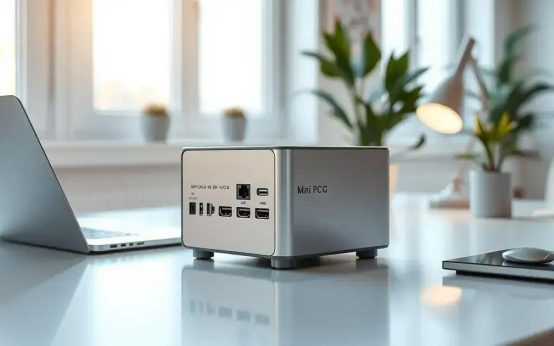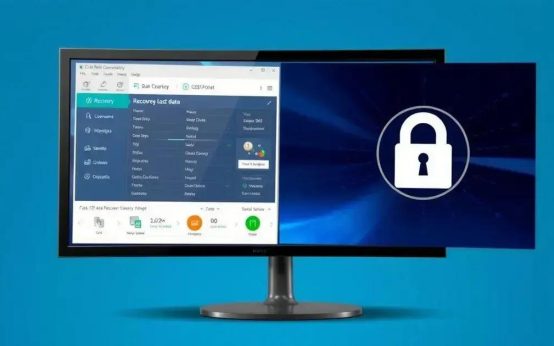When Windows 10 support ends, users can consider upgrading to Windows 11, exploring Linux distributions for flexibility, or using alternative operating systems like macOS and Chrome OS to maintain security and functionality.
With the countdown to the end of **Windows 10** support began, it’s crucial to understand what changes are coming and how it affects your device. Let’s break it down!
Understanding the end of Windows 10 support

The end of Windows 10 support signals a significant shift for users. As support concludes, users will no longer receive security updates or fixes, making it essential to plan accordingly. This phase means potential vulnerabilities may arise as new threats surface, highlighting the need for an informed transition.
What Does It Mean for Users?
Without ongoing support, utilizing Windows 10 becomes a risk, particularly for individuals and businesses that handle sensitive data. Unpatched security holes can lead to data breaches and malware attacks, putting both personal and financial information at risk.
Your Options Moving Forward
Users facing the end of Windows 10 support have several alternatives. Upgrading to a newer version of Windows, such as Windows 11, is a common recommendation. However, users should also consider other operating systems that may suit their needs better.
Why Stay Informed is Crucial
Keeping abreast of all developments regarding the end of support allows users to make informed decisions. Being proactive about the transition can help protect against unforeseen issues, ensuring technology remains a benefit rather than a liability.
What are extended security updates?

Extended Security Updates (ESUs) are a vital option for users who require continued support after the end of Windows 10 support. These updates provide critical security patches that help protect systems from threats and vulnerabilities.
Who Needs Extended Security Updates?
Organizations and businesses that rely heavily on Windows 10 may consider ESUs necessary. For those with legacy systems that cannot upgrade immediately, these updates are essential for maintaining security.
How Are ESUs Offered?
ESUs are typically offered for a fee, allowing institutions to continue receiving essential updates for a limited time. This service helps bridge the gap between the end of support and the necessary transition to newer software.
Benefits of Using ESUs
By opting for ESUs, companies can protect sensitive data and maintain compliance with industry regulations. This can prevent costly data breaches and safeguard the organization’s reputation.
Considerations When Choosing ESUs
While ESUs are beneficial, they are not a long-term solution. Organizations must weigh the costs against the need for an updated operating system. Eventually, transitioning to a newer version of Windows or another OS is crucial for ongoing security and functionality.
Who needs to pay for ESU?

Extended Security Updates (ESUs) are particularly crucial for certain groups of users. Organizations that depend on Windows 10 but have not yet migrated to a newer version may find ESUs essential for their operations.
Businesses with Legacy Systems
Companies that run essential software on Windows 10 may struggle to upgrade due to compatibility issues. For these businesses, paying for ESUs can allow them to maintain security during their transition process.
Government and Healthcare Organizations
Entities within the government and healthcare sectors often handle sensitive information and must adhere to strict compliance regulations. These organizations typically invest in ESUs to protect their data while ensuring they remain in compliance.
IT Departments in Large Corporations
IT departments in larger companies may also need to purchase ESUs. These teams often manage multiple systems and cannot upgrade every machine at once. Using ESUs allows for smooth transitions without compromising security.
Individuals with Specific Needs
Lastly, individual users with specific requirements or legacy software may consider paying for ESUs. This option ensures they remain protected while finding the right time to transition to a newer system.
Alternatives to using Windows 10 after support ends

Once Windows 10 support ends, users face key decisions about their operating systems. Fortunately, several alternatives exist that cater to various needs.
Upgrading to Windows 11
The most straightforward option is to upgrade to Windows 11. This latest version offers enhanced features, improved security, and better performance. However, users should check their hardware compatibility before making this transition.
Exploring Linux Distributions
Linux is a great alternative for those looking for a free operating system. Various distributions like Ubuntu and Fedora offer user-friendly interfaces and robust support communities. Linux can be a good choice for users who prioritize security and customization.
Using macOS
For those considering a switch, macOS is another option. While requiring a hardware investment, it provides a seamless experience, especially for users already in the Apple ecosystem. macOS is known for its stability and security features, making it suitable for creative professionals.
Cloud-based Operating Systems
Another trend is adopting cloud-based operating systems like Google’s Chrome OS. These systems rely heavily on internet connectivity and are designed for users who primarily operate within web applications. Chrome OS is lightweight and ideal for browsing, email, and streaming.
Virtual Machines
Users may also consider using a virtual machine (VM) to continue running Windows 10 within another operating system. This approach allows users to access old applications while using more modern software. However, it requires adequate hardware resources to function smoothly.
Using Linux or other operating systems

With the end of Windows 10 support, many users are exploring alternatives like Linux or other operating systems. These options offer unique benefits and can be tailored to meet specific user needs.
Why Consider Linux?
Linux distributions, such as Ubuntu and Fedora, are popular due to their flexibility and strong community support. They are open-source, meaning anyone can use them for free, making them a cost-effective choice.
Customization and Control
One of the main advantages of Linux is its high level of customization. Users can modify the interface, choose specific software, and even change the kernel to better suit their needs. This makes Linux a great choice for tech enthusiasts and developers.
Security Benefits
Linux is known for its strong security features. Many distributions are less vulnerable to malware compared to Windows systems, making them a preferred choice for users concerned about security.
Other Operating Systems
In addition to Linux, there are various other operating systems available. For example, macOS offers an intuitive user experience but requires Apple hardware. Chrome OS is designed for lightweight tasks and relies heavily on web applications, ideal for casual users.
Making the Transition
Switching to a new operating system can be challenging. Users should back up their data, test new operating systems through live USBs, or dual-boot to decide which one meets their needs best.
In summary, navigating the end of Windows 10 support
As the support for Windows 10 concludes, users face important choices regarding their operating systems. Whether opting for upgrades to Windows 11, exploring Linux alternatives, or considering other operating systems like macOS and Chrome OS, each option has its unique benefits.
Staying informed and proactive allows users to transition smoothly, ensuring their systems remain secure and efficient. By understanding various alternatives, users can make decisions that best suit their needs and preferences, paving the way for a more secure computing experience.
Ultimately, the right choice will depend on individual requirements and long-term goals.
FAQ – Frequently Asked Questions about Windows 10 Support Alternatives
What should I do when Windows 10 support ends?
You should consider upgrading to Windows 11 or exploring alternative operating systems like Linux or macOS to ensure continued security and functionality.
Why is Linux a good alternative to Windows 10?
Linux is open-source, cost-effective, and offers strong security features, making it an attractive option for users looking for flexibility and customization.
Can I switch to macOS if I currently use Windows 10?
Yes, switching to macOS is possible, but it requires Apple hardware. It provides a user-friendly experience and strong security.
What are the benefits of using Chrome OS?
Chrome OS is designed for lightweight tasks and works best with web applications, making it suitable for casual users who mainly browse the internet.
How can I ensure a smooth transition to a new operating system?
Back up your data, try live USBs of new operating systems, or consider dual-booting to test them before fully transitioning.
What other options are available besides free systems like Linux?
You may consider paying for Extended Security Updates (ESUs) for Windows 10 if needed, or using cloud-based solutions depending on your requirements.

 Mini PC: Unleash Powerful Performance in a Compact Design
Mini PC: Unleash Powerful Performance in a Compact Design  Windows update: avoid the taskbar nightmare and reboot loops
Windows update: avoid the taskbar nightmare and reboot loops  Data recovery: How to restore lost partitions easily
Data recovery: How to restore lost partitions easily